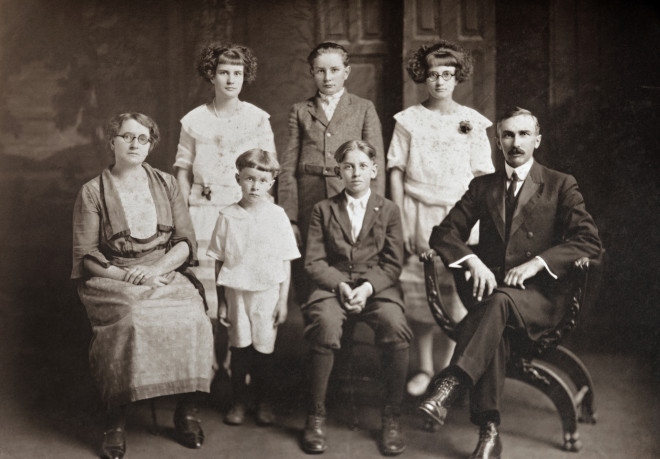When managers start chatting freely, you sometimes learn interesting things. Isaac Reynolds, a product manager at Google and "head of photos," recently philosophized about the present and future of digital photography. While I thought it was about capturing the deepest night or minimizing digital noise, his thoughts went in a completely different direction. According to Reynolds, representing reality will no longer be the top priority. Instead, the aim is to create images based on customer expectations, not on the technical limitations of their cameras. With a shift from image processing to image creation, accurately depicting the moment becomes secondary–but is that really the right approach?

Today, when you open a phone to take a selfie, you often see a strangely smooth version of yourself on the display, with beauty filters turned on by default. The skies are bluer, the flowers more vibrant. This is already a concession from manufacturers who want to delight their customers. They want to perform well in tests where "radiant colors" often get better results than "dull" realism. All major manufacturers now offer extensive, but easy-to-use, post-processing options right on their phones to make everything shine, reality be damned. It doesn't take long, it alters the standards and expectations regarding single photos, and it ultimately affects photography as a whole. If you're wondering how important phones are in the field of photography: In 2023, about 92.5% of all photos were taken with smartphones, and that tendency is rising. These photos look different today than they would have five years ago.
There is a wonderful example on Facebook: A group showcases the beautiful sides of my hometown, constantly posting new shot variations of the beach. Photos with special lighting and impressive atmospheres get a lot of likes. The problem: None of it is real! I practically grew up on this beach and know what it looks like at all times of the year, day, and night. The sunset is never that colorful, the sea never shimmers so hypnotically, and the grass battered by wind and saltwater is not as green as depicted in the photos. It's not a competition based on photography but image editing skills. Genuine photos that capture a beautiful moment realistically seem rather boring in comparison!
 Too many effects, even more clicks and likes
Too many effects, even more clicks and likes
What starts off with effects continues with portraits and group photos. When a picture of a group of people I personally know appeared in a local newspaper, I was very grateful for the names in the caption. The privately submitted photo had rejuvenated the ladies in their mid-60s by about 15 years thanks to filters. A very nice elder lady, who in reality looks more like Miss Marple (played by Margaret Rutherford), I did not recognize at all. I, too, am often asked to touch up family photos "so people look good." Sure, you don't want to be immortalized with pimples at a golden wedding anniversary–and your family members shouldn't shine like a roast pig sweltering in the summer heat–but I always set limits. Photos are supposed to help you remember what was, not what would have been had Hollywood filmed it.
With the wider adoption of AI-powered image editing, and the word "artificial" having never been more true, what used to require Photoshop expertise, and a significant time investment, is now available to everyone nearly instantly. With a few clicks, wrinkles disappear, the sky becomes bright blue, and annoying tourists vanish from the panorama shot. Sure, it all looks somehow better, but it's fake. And the further back an event lies, the more we rely on photos to remember it. And the more we rely on the "magic" of effects and AI, the more our memories will be falsified. If, for example, your uncle's face is characterized by very deep-set eyes, should they be automatically erased? Imperfections like this one would be gone, along with much of the essence and soul that bring our memories to life.
 A testament of time
A testament of time
Current smartphones already try to prefect photos for use on social media sites like Instagram–where reality mostly takes a backseat to prestige. If you're in Santorini, the walls have to be perfectly white, and the water and sky so deeply blue that even the dullest phone can reproduce it in night mode! If you make your money looking decorative even on a garbage dump, that might make sense, but what about us regular Joes? Do we really have to question the veracity and realism with every photo? Ultimately, the customers decide which path manufacturers are going to follow. I, for one, have a clear favorite among the countless shots I took in Barcelona: In front of the towering church "Sagrada Familia" stands a little donkey with a little boy next to it. They apparently like each other very much. With the way they stand there in front of this imposing building, small, both a bit shaggy, and in the shade, they appear simply perfectly imperfect.
What I would like to know: Do you still post-edit your photos even if their contents might look prettier afterwards than they really were?




Great article.
I seldom use a phone, or post-process images.
My aim is to take the perfect photo every time.
AI does have it's place but for me as a photographer for many years, I do NOT alter the true reality of an image I shoot. I use it very sparingly. Any pro photographer would agree with me, I feel.
I enjoy editing photos to be able to prduce photo that if I had the time and equipment i would have taken in the first place . Not all of us have the luxury of bountiful time to create the photo desired . Mostly for me its a quick snap .
I feel that for me editing can enhance my enjoyment of captured scene.
re: 6/17 P. Mcillan comments
Yes I'm a bit older and remember how I chose my film. When I wanted to be realistic, I chose Ektachrome, (or maybe Ansco film) when I wanted to make the scene brighter and more intense, especially anything with reds and yellows in the scene a little brighter, I chose Kodachrome.
I still prefer not to 'enhance' my images either in-camera or in post.
Good, thought-provoking article, as always.
I have mostly kodachrome slides of my youth/family holidays. After I scan them, they often turn out blurred/ faded/colour-changed with age? If I can use AI to get them in good focus, and restore realistic colours for my personal memories, I will. If I can use AI to make them worthy of a prize-winning magazine article, I won't.
If technology exists to restore things - great; to fake things - not great.
Good article, and I agree with many of your points. My photos are among the 7.5% taken with a camera rather than a smartphone, and yes, I do post-edit all of my shots (from raw). The goal of my images is to convey the emotions I felt when experiencing the original view. So, not to make them "prettier", but to make them MORE realistic than the camera records. If that sounds contradictory, we have to remember that no camera/phone in production today is capable of recording the dynamic range and color gamut that the human visual system is capable of. Plus, we are projecting a 3-dimensional, binocular view onto a 2-dimensional monocular medium. Coupled with the fact that 2/3 of the color info in a digital photo is algorithmically calculated and not directly recorded (by virtue of the sensor and color matrix filter technology), it's fair to say that all out-of-camera photos are technically "fake" representations of the original scene. Post-processing, artfully administered, can recreate some of the lost original "reality".
Regarding the idea of feeling the "need" to edit my photos; Yes! Absolutely! Our world has become too poluted. Colours have a light bleached out effect.
In my studies of Quantum Physics and the idea of parallel realities; I prefer to use the edits to help me navigate to what I prefer. Something much more sublime.
I take snaps with my phone, without any processing - nothing really important mostly aid-memoires. If I want to take a photo I use a camera and occasionally use processing software on the raw image.